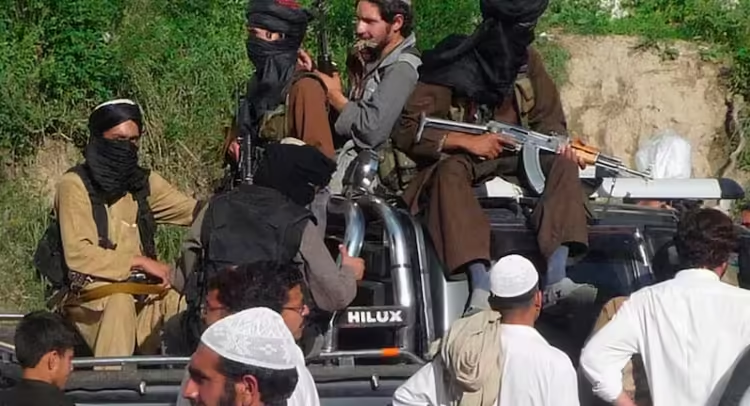Tensions on the Afghanistan-Pakistan border have further increased since a ceasefire between the TTP and Islamabad unravelled in 2022, and Mr Khan considers the TTP the primary threat to Pakistan’s security.
According to the country’s Institute for Conflict and Security Studies, Pakistan suffered 409 militant attacks in the first five months of 2024, an 83 per cent increase compared to the same period a year before.
Most of the attacks are happening in Khyber Pakhtunkhwa in the north-west and Balochistan in the south-west. While the TTP and the Afghan Taliban are ideologically similar, the TTP are seeking to purge Pakistan government control from Pashtun tribal lands and push an ultraconservative interpretation of Islam across Pakistan.
“The Afghan leadership has assured us that they would deter TTP from mounting these attacks against Pakistan,” Mr Khan said.
“They haven’t succeeded yet, and we’ve had several rounds of conversations with them. And hopefully they would put the political will and operational arm behind their promises.”
Despite decades of security co-operation, the US-Pakistan relationship has seldom been straightforward, especially during the 20-year war in Afghanistan, when Washington accused Islamabad of playing a double game by supporting the Afghan Taliban while also benefiting from billions of dollars in US security assistance.
Relations hit a low point when, in 2018, then-president Donald Trump cut $1.3 billion in security assistance to Pakistan. Under the Biden administration, ties have improved slightly and in 2022 Congress authorised a $450 million sales package to sustain Pakistan’s fleet of F-16s.
“We welcomed that, and that was a very big signal. And we were hoping that there would be another sustainment package too. But that hasn’t materialised yet,” Mr Khan said.
“Over the decades we bought many US defence platforms. For the army, for navy for air force, they need to be sustained therefore, we need spares. But we also need new equipment and new platforms, we need aircraft, we need helicopters, we need C-130s”.
Since the Taliban took power in 2021, Pakistan has argued that the security situation in Afghanistan has improved to the point that it is safe for Afghan refugees living along the Pakistan border region should return.
Last October, Pakistan announced the Illegal Foreigners’ Repatriation Plan that aims to expel 1.7 million refugees. Rights groups have said many of those being deported could face persecution in Afghanistan.
Mr Khan said members of the US Congress ask him about the plan. He said of the 4 million undocumented people living in Pakistan, 1.7 million “had to be sent back to Afghanistan”.
“The bulk of the Afghans who were in Pakistan, they went back to their homeland voluntarily, some 98 per cent. We didn’t have to force them,” said Mr Khan, a Pakistani diplomat who previously served as ambassador to the UN.
“These are undocumented refugees who just would walk into Pakistan without any papers, without any registration in Pakistan. … We’ve been talking about this and explaining to the people here [in the US]“.


